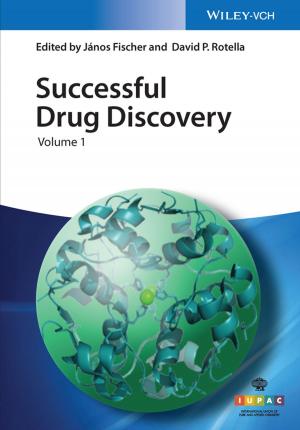The European Research Council
Nonfiction, Reference & Language, Education & Teaching, Teaching, Teaching Methods| Author: | Thomas König | ISBN: | 9780745691282 |
| Publisher: | Wiley | Publication: | February 27, 2017 |
| Imprint: | Polity | Language: | English |
| Author: | Thomas König |
| ISBN: | 9780745691282 |
| Publisher: | Wiley |
| Publication: | February 27, 2017 |
| Imprint: | Polity |
| Language: | English |
Founded in 2007 to fund basic research, the European Research Council (ERC) has become the most revered instrument in European science policy and one of the world’s most important focal points for the funding of scientific research. Its grants are much sought-after by researchers and scholars and it is widely considered to have had a major impact on research communities and institutions across Europe. How did this remarkable organization, the creation of which was widely regarded as a ‘miracle’, come into being, what has it achieved and how is it likely to adapt in the face of current and future challenges?
This book is the first comprehensive history of the creation and development of the ERC. Drawing on first-hand knowledge, Thomas König gives a detailed account of how a group of strong-minded European scientists succeeded in creating the ERC by pushing for a single goal: more money for scientific research with fewer strings attached. But he also shows how this campaign would have failed had it not been taken up by skilful officials of the European Commission, who recognized the ERC as a way to gain more influence in shaping European science policy. Once established, the ERC developed a carefully crafted self-image that emphasized its reliance on peer review and its differences from all other EU research programmes.
In addition to analysing the creation and development of the ERC, this book critically examines its achievements and its claims. It also explores the implications of the rise of the ERC and the challenges and threats that it faces today, engaging with broader questions concerning the relationship of politics, science, and money at the beginning of the 21st century. It will be essential reading for all scholars and students of science policy, for decision-makers and administrators across Europe, and for researchers and academics looking to engage with and understand the ERC.
Founded in 2007 to fund basic research, the European Research Council (ERC) has become the most revered instrument in European science policy and one of the world’s most important focal points for the funding of scientific research. Its grants are much sought-after by researchers and scholars and it is widely considered to have had a major impact on research communities and institutions across Europe. How did this remarkable organization, the creation of which was widely regarded as a ‘miracle’, come into being, what has it achieved and how is it likely to adapt in the face of current and future challenges?
This book is the first comprehensive history of the creation and development of the ERC. Drawing on first-hand knowledge, Thomas König gives a detailed account of how a group of strong-minded European scientists succeeded in creating the ERC by pushing for a single goal: more money for scientific research with fewer strings attached. But he also shows how this campaign would have failed had it not been taken up by skilful officials of the European Commission, who recognized the ERC as a way to gain more influence in shaping European science policy. Once established, the ERC developed a carefully crafted self-image that emphasized its reliance on peer review and its differences from all other EU research programmes.
In addition to analysing the creation and development of the ERC, this book critically examines its achievements and its claims. It also explores the implications of the rise of the ERC and the challenges and threats that it faces today, engaging with broader questions concerning the relationship of politics, science, and money at the beginning of the 21st century. It will be essential reading for all scholars and students of science policy, for decision-makers and administrators across Europe, and for researchers and academics looking to engage with and understand the ERC.















